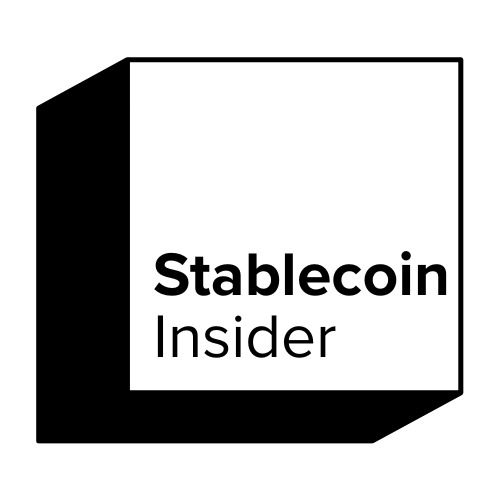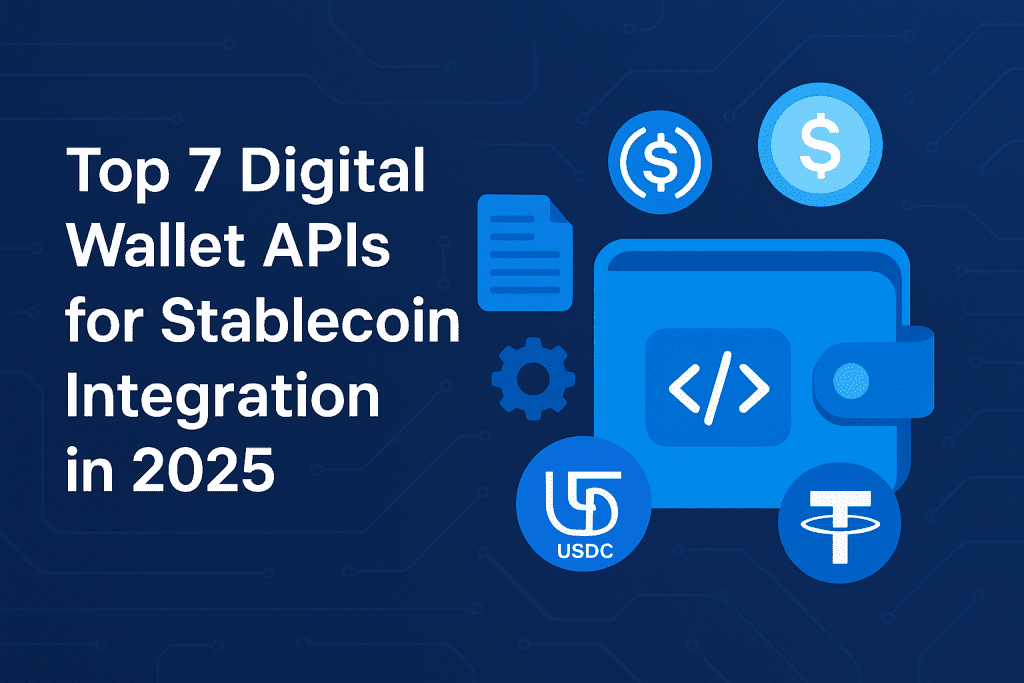In the digital finance landscape, stablecoins have become the cornerstone of many fintech applications.
Whether you’re building a crypto exchange, DeFi app, or a global payroll solution, integrating stablecoins like USDC, USDT, or EUROC into your platform requires a reliable and feature-rich digital wallet API.
These APIs allow developers to enable wallet functionality, manage transactions, ensure compliance, and support seamless user experiences across various blockchains.
This guide explores the top digital wallet APIs in 2025 that make stablecoin integration faster, safer, and more scalable.
Key Takeaways:
- Digital wallet APIs enable fast and secure integration of stablecoin functionality.
- APIs differ in features, supported chains, KYC compliance, developer tools, and pricing.
- Choosing the right API can accelerate product development and ensure regulatory compliance.
- Most top APIs now support multiple stablecoins across multiple blockchains.
1. Fireblocks API
Fireblocks provides an institutional-grade digital wallet infrastructure that supports a broad range of assets and blockchains. Their API is trusted by major exchanges, fintechs, and asset managers.
- Stablecoin Support: USDC, USDT, PYUSD, EUROC across Ethereum, Solana, Polygon, Avalanche, and more.
- Key Features:
- Multi-Party Computation (MPC) for enhanced security
- Automated treasury and settlement management
- Direct access to the Fireblocks Network for off-chain settlement
- Use Cases: Ideal for large-scale operations like exchanges, hedge funds, and fintech platforms.
- Pros: High-end security protocols, scalable infrastructure, and wide stablecoin support.
- Cons: Premium pricing structure and complexity may not suit early-stage startups.
2. Coinbase Wallet SDK
Coinbase Wallet SDK empowers developers to build applications that interact with Web3 wallets and stablecoins. It provides easy access to the Coinbase ecosystem.
- Stablecoin Support: Native support for USDC; limited support for other stablecoins.
- Key Features:
- Web3 connectivity
- Seamless Coinbase wallet integration
- Open-source with good documentation
- Use Cases: Consumer-facing apps, DeFi platforms, and Web3 interfaces.
- Pros: Backed by Coinbase, streamlined onboarding experience.
- Cons: May limit reach to Coinbase Wallet users only in some scenarios.
3. Wyre API (via MoonPay)
Wyre (now part of MoonPay) specializes in APIs for fiat-to-crypto conversions and wallet infrastructure, with a strong focus on regulatory compliance.
- Stablecoin Support: USDC, USDT, DAI.
- Key Features:
- Built-in KYC and AML procedures
- Fiat on-ramps and off-ramps
- Real-time money movement and compliance reporting
- Use Cases: Global remittances, payroll platforms, and fintech apps.
- Pros: Compliance-ready infrastructure with fiat support.
- Cons: Post-acquisition changes could affect support and pricing.
4. Circle Wallets API
Developed by the issuer of USDC and EUROC, Circle’s API is tailor-made for stablecoin developers looking to build trust and regulatory clarity into their apps.
- Stablecoin Support: Full support for USDC (on Ethereum, Solana, Avalanche, etc.), and EUROC.
- Key Features:
- Embedded wallets
- Secure API calls for transactions and account management
- Built-in audit trails
- Use Cases: Payment processors, B2B platforms, and neobanks.
- Pros: Deep USDC integration, solid reputation in compliance and regulation.
- Cons: Doesn’t support stablecoins outside of Circle’s ecosystem.
5. Tangem SDK
Tangem takes a hardware-first approach with its SDK for secure, NFC-based self-custody wallets, ideal for mobile-first and emerging market applications.
- Stablecoin Support: USDT, USDC, DAI.
- Key Features:
- NFC card integration for cold wallet storage
- Developer SDK for mobile wallet apps
- Fully offline security model
- Use Cases: Retail crypto wallets, peer-to-peer transfers, remittances.
- Pros: High physical security, user-friendly mobile experiences.
- Cons: Requires physical Tangem card hardware; not ideal for every digital-only project.
6. Custodia API
Custodia Bank is building banking-grade APIs for the digital asset ecosystem, offering compliant, scalable infrastructure for stablecoin-based financial products.
- Stablecoin Support: USDC, USDT.
- Key Features:
- Stablecoin clearing and real-time settlement
- API-first infrastructure
- Support for bank-to-chain connectivity
- Use Cases: Treasury operations, B2B payments, institutional platforms.
- Pros: Built by a regulated crypto-native bank; ideal for serious financial institutions.
- Cons: Still in limited release; may require approval to access full features.
7. Ramp Network API
Ramp offers a powerful API for converting fiat to stablecoins and crypto, with embedded onboarding tools and a growing international presence.
- Stablecoin Support: USDC, USDT, DAI, and more.
- Key Features:
- Embedded checkout UI for seamless onboarding
- Global KYC/AML coverage
- Developer-friendly tools with fast integration
- Use Cases: DApps, fintech wallets, Web3 games.
- Pros: User-friendly experience, fast deployment, global reach.
- Cons: May face regulatory or availability issues in specific regions.
Conclusion
As stablecoins become essential to the global digital economy, having the right digital wallet API is no longer optional—it’s strategic.
These APIs not only offer fast and secure integrations, but also support cross-border transactions, multi-chain compatibility, and built-in compliance features. Whether you’re a developer building a crypto-native app or a traditional company exploring digital payments, choosing the right API can drastically reduce development time and ensure legal readiness.
Before choosing, evaluate your technical capabilities, target users, compliance needs, and geographic reach. With the right wallet API, you can unlock new business models and revenue streams driven by stablecoins.
Read Next
FAQ:
What is a digital wallet API?
A digital wallet API is a set of tools that allows developers to create, manage, and interact with digital wallets programmatically. These APIs typically support crypto transactions, wallet creation, KYC, and blockchain interactions.
Can I use a wallet API without handling private keys?
Yes. Many APIs like Fireblocks and Circle offer MPC or custodial wallet options, meaning the platform handles private keys on your behalf.
Which API is best for supporting multiple stablecoins?
Fireblocks and Ramp Network offer multi-stablecoin and multi-chain support, making them ideal for diverse stablecoin use cases.
Is KYC mandatory when using a digital wallet API?
It depends on the provider and use case. APIs like Wyre and Ramp include built-in KYC for fiat on/off ramps.
How do I choose the right API for my project?
Consider your use case (e.g., DeFi, payroll, remittances), compliance needs, supported stablecoins, pricing, and the level of developer documentation available.

